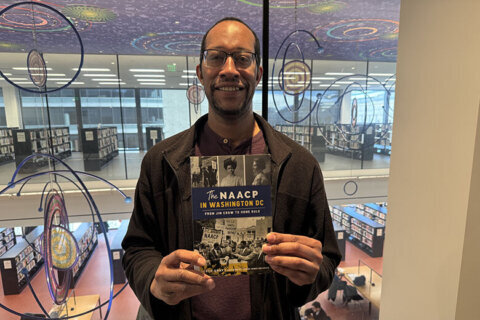Eleven charter schools in D.C. plan to offer admissions preference to students who are homeless, receive assistance, in foster care or who are a year older for their grade.
The At-Risk Preference Approval and Monitoring Policy was created by DC Public Charter School Board to give at-risk students and their families greater access to the schools they want to attend.
The schools DC PCSB approved are:
- Breakthrough Montessori PCS
- DC Bilingual PCS
- DC Wildflower
- Digital Pioneers Academy PCS
- E.L. Haynes PCS
- Inspired Teaching Demonstration PCS
- Sojourner Truth Montessori PCS
- The Children’s Guild DC PCS
- Two Rivers PCS
- Washington Latin PCS
- Washington Yu Ying PCS
The D.C. Council passed the “Expanding Equitable Access to Great Schools Act of 2020” last year, to expand equitable access to public charter schools to at-risk students. Those charter schools are some of the most sought-after schools in the District.
During a public hearing in July 2020, before the law was passed, Chelsea Coffin, the director of the Education Initiative of D.C. Policy Center, testified before the city council on the report the center published on at-risk priority and its implications on access and diversity in schools.
The report explored three scenarios for at-risk priorities for prekindergarten — a preference before siblings, a preference after siblings and reserving seats for at-risk applicants.
Improving school diversity and access
In her testimony, she said the report found that match rates for at-risk students can jump to as high as 71% if there’s a preference before siblings, 42% for after siblings, and 19% if a school reserves 30% of seats to at-risk applicants.
With the current lottery system, only 4% of at-risk students match to a school choice.
The report, she said, also found that at-risk priority has the potential to increase socioeconomic diversity at schools that have a low percentage of at-risk students. The D.C. Policy Center said socioeconomic diversity is “extremely low at 35 schools with less than 20% of students who are at risk.”
Forty-seven percent of students in D.C. are identified as at-risk, according to the 2020 DC School Report Card.
During a hearing in July 2020 before a council committee, Rick Cruz, chair of the DC PCSB, said that with the public health and economic crisis, “we can expect to see more students meeting the criteria of the at-risk designation.”
Coffin concluded by saying that a priority for at-risk students in the lottery is a “way to improve access to some schools for some students furthest from opportunity.”
In her testimony before the council in July 2020, Alyssa Noth, a former policy analyst at DC Fiscal Policy Institute, and current director for intergovernmental affairs at DCPS., said the expanding access to the Great Schools Act is a “small step small step toward a more equitable public school system in D.C.“








